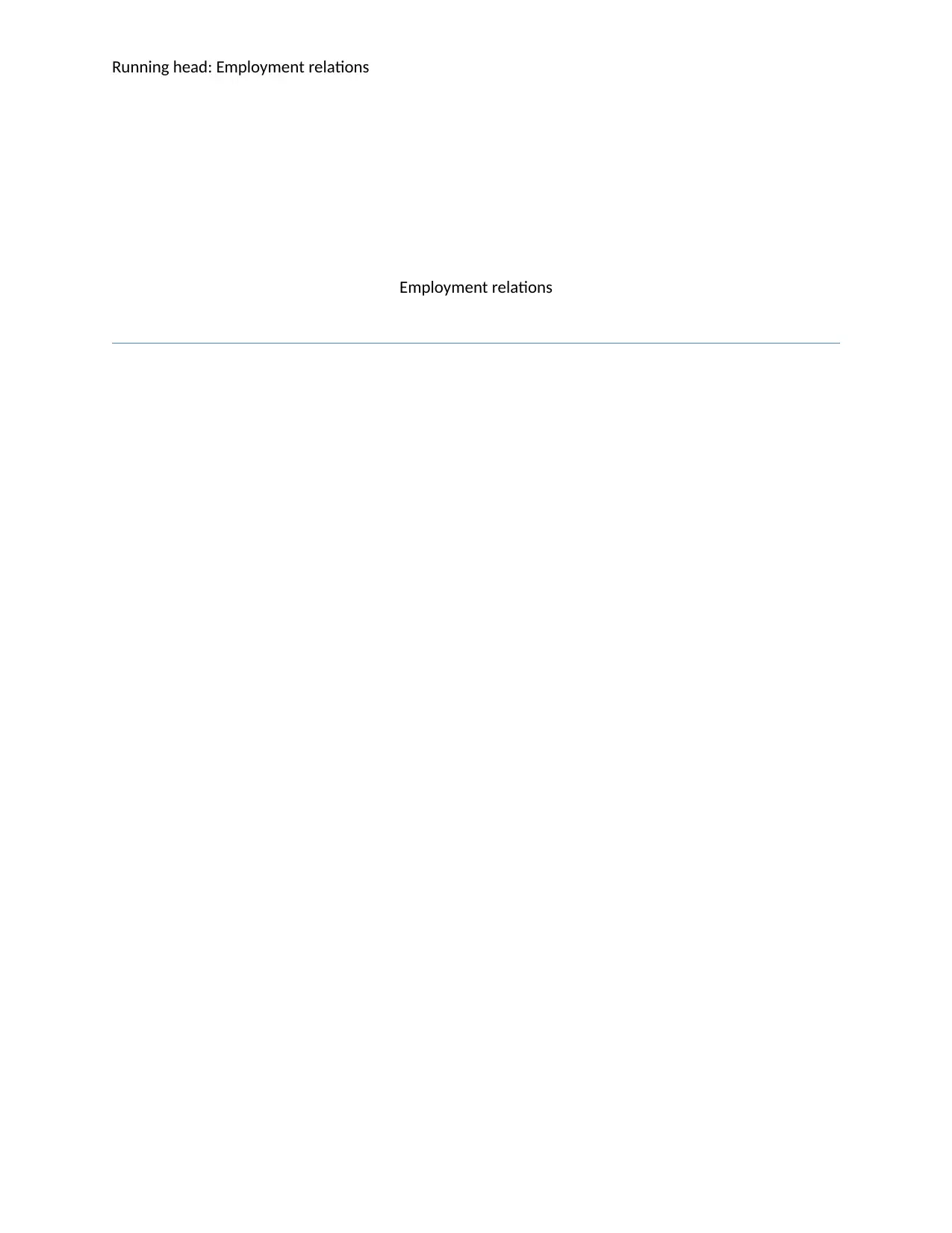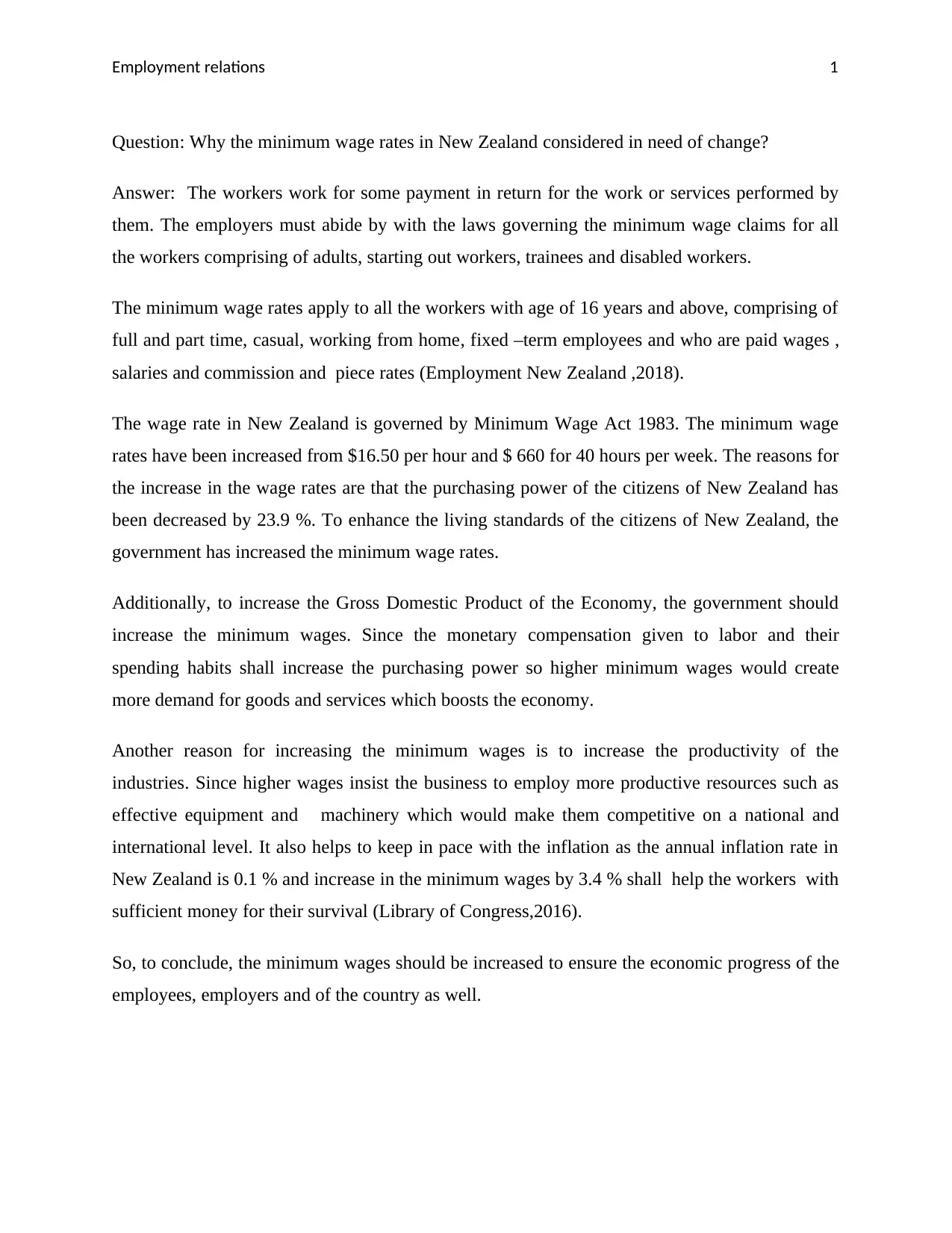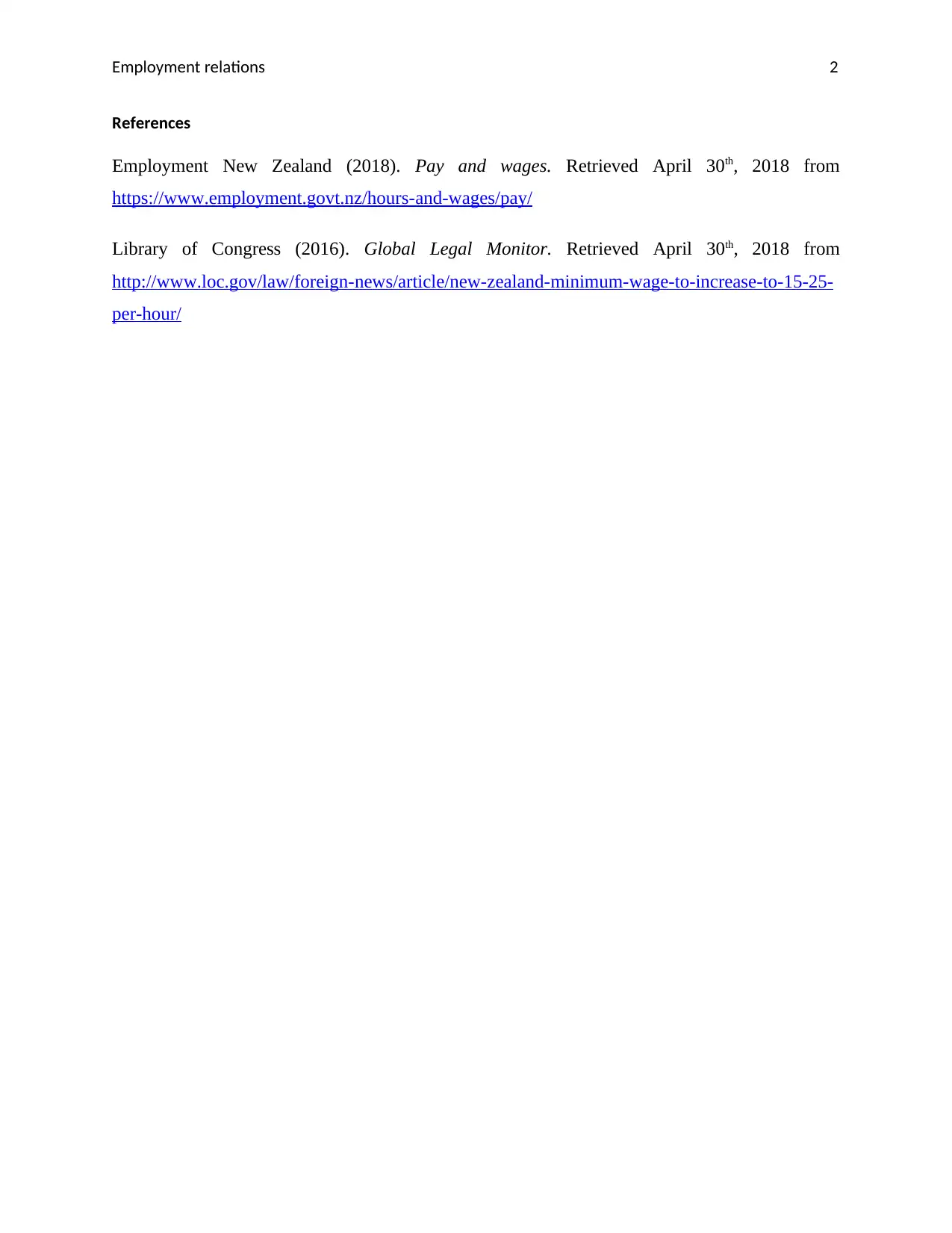New Zealand Employment Relations: Minimum Wage Rates Analysis
VerifiedAdded on 2021/06/15
|3
|423
|35
Homework Assignment
AI Summary
This assignment examines the minimum wage rates in New Zealand and the rationale behind their adjustments. It highlights the increase from $16.50 to $660 for 40 hours per week, attributing it to a decline in purchasing power by 23.9%. The assignment argues that increasing minimum wages can boost the Gross Domestic Product (GDP) by enhancing consumer spending and stimulating demand for goods and services. Furthermore, it suggests that higher wages incentivize businesses to invest in more productive resources, thereby enhancing competitiveness. The assignment also references the current inflation rate and the need to maintain the workers' standard of living. The conclusion emphasizes the importance of wage increases for the economic advancement of employees, employers, and the country. References include Employment New Zealand (2018) and Library of Congress (2016).
1 out of 3










![[object Object]](/_next/static/media/star-bottom.7253800d.svg)